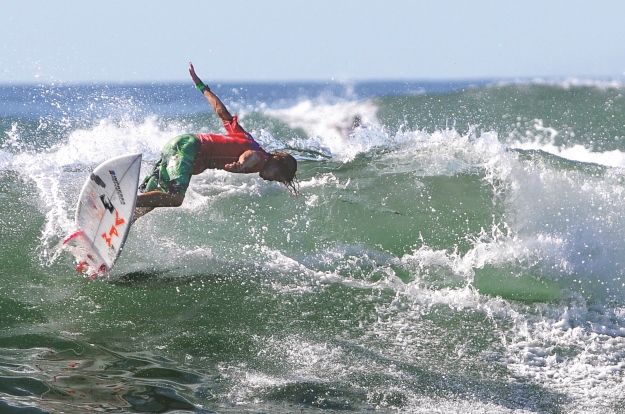At the onset of the 1980s, surf tourism in El Salvador seemed like a fading pipe dream. The country’s fledgling industry, which had shown some potential in the 1970s, stalled as Salvadorans braced for civil war. For the next 12 years, as battles raged between the right-wing government and political dissidents of the Farabundo Martí National Liberation Front, most waves along the 191-mile Pacific coastline remained empty – save for a few hardy souls in less volatile areas such as La Libertad.
But when government officials signed a peace accord on January 16, 1992, the boom was on. Surfers returned in droves to some of the region’s best, most consistent waves. Today, the point breaks at La Libertad – and dozens of other surf spots around the country – are crowded with locals and visitors alike, all in search of a perfect ride.
The renaissance shows that surfing is now an important part of El Salvador’s tourism industry.
“Surf tourism has generated many visits to El Salvador from athletes across the world,” Roberto Ayala, a tourism expert with the Salvadoran Tourism Corporation (CORSATUR) told AQ. “That helps us spread the word about good experiences that they have had (here).”
Case in point: For the past five years, the World Surf League has held a qualifying event at Punta Roca, La Libertad’s famed surf break. In January, CORSATUR reported that this and other “six star” events had attracted more than 20,000 spectators and surfers to El Salvador’s beaches. Of the more than 350,000 U.S. tourists to visit El Salvador in 2015, around 38 percent came for the beaches, according to CORSATUR.
But the economic momentum does not come without conflict. An increase in surf tourism followed by more development has led to the privatization of some of the country’s most attractive beachfronts. Many of these are located in less developed areas, where the politics of property ownership are constantly at play.
“Because (the areas) are relatively far from San Salvador, very few national surfers go there,” Salvadoran professional stand-up paddler Jorge Dominguez told AQ. “The surf spots are usually dominated by foreigners.” Consequently, public beach access can be compromised to accommodate tourists.
Tourism officials, for their part, have not turned a blind eye to these concerns. Ayala stresses that El Salvador’s beaches are all officially public, and “local mayors are responsible for guaranteeing that access to them is respected.” He also notes that surf businesses must comply with the National Environmental Law, participate in environmental awareness campaigns, and cooperate in the construction of infrastructure for the treatment of water and waste.
Nonprofit organizations, too, are doing their part to ensure that surfing remains a positive feature of Salvadoran life. A number of organizations, such as the Florida-based Share The Stoke Foundation, donate new and gently used surfboards to promote environmental awareness and give Salvadoran youth an alternative to gangs. Others run surf camps specifically to teach Salvadoran women how to catch their country’s celebrated waves.
If its industry can grow in a sustainable, environmentally responsible way, El Salvador has the potential to become a true surf mecca. For now, the conditions look good.
—
Iatarola holds a master’s degree in Latin American Studies from the University of California, San Diego, where she is also a researcher and PhD candidate in environmental communication.




